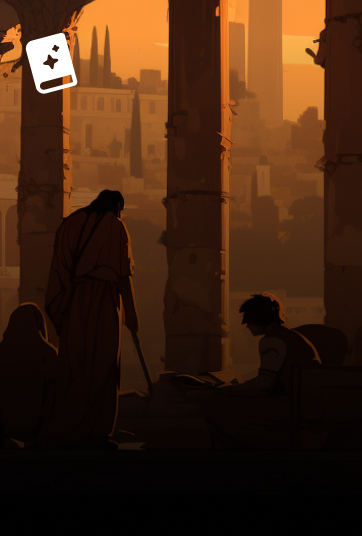
Lilah

Lilah
Ratings1
Average rating2
When I was in high school, I read and loved The Red Tent. Revisiting it on audio recently (it holds up) made me curious about other biblical fiction. Marek Halter has actually written several books based on biblical women, including Lilah. I was a little disappointed to find out that she's apparently not actually a character in the Bible, but it's not actually important that she be mentioned in order for the world she lived in to be explored. She and her brother Ezra, both Jewish, have been raised by their well-to-do aunt and uncle in Babylon after the death of their parents when they were small. Lilah enjoys her life of privilege and has fallen very much in love with Antinoes, the Persian boy who was the siblings' best friend growing up. Ezra, though, has renounced contact with the secular and gentile world, and has gone to live in the Jewish section of the city to learn from the rabbis.
When Antinoes proposes to Lilah, despite her delight, she refuses to accept until she has the permission of her closest male relative: Ezra. She loves her brother despite their vast difference in chosen life paths, but she knows he won't assent to her marriage outside the faith. Ezra has come to believe that he's meant to lead a journey of the Bablyonian Jewish community back to Jerusalem, and so Lilah endeavors to use her connections to the royal family to make that happen, as his departure will leave her free to wed. But while she does secure permission for Ezra to leave, the scheme backfires on her and she's forced to come with him. The journey is long and arduous, and it changes Ezra. Her good-hearted brother becomes more and more fanatic, and eventually demands that the Jewish men leave behind their gentile wives and children. Lilah leaves the last bit of privilege she has left to go with the abandoned families.
This book was...okay, I guess? Lilah was an appealing enough character, though not deeply realized enough to really make much connection with. She was high-spirited in a way that felt appropriate for her time in history, and I appreciated the sex-positivity of her story arc, but it didn't seem like she got much past surface level. Everyone else in the book was much worse off...Ezra's development from pious to zealot is predictable and not very interesting, Antinoes is never more than a cardboard idealized love interest, and side characters were sketched very thinly. As a character-focused reader, this did not bode well for my enjoyment of the novel.
With the underdevelopment of both plot and people, I was puzzled why the book was so short! It's less than 300 pages long...bumping it up to about 350 would have given Halter more room to create well-rounded characters and give events more momentum. There's not even much rhetorical flair to spice things up, so the book kind of just trudges along until it's over. It's not bad, nothing here was actively offensive to my sensibilities as a reader, it was just mediocre. Allegedly, this is the weakest of his biblical narratives, so I'll give Halter another shot, but I just can't affirmatively recommend this book.